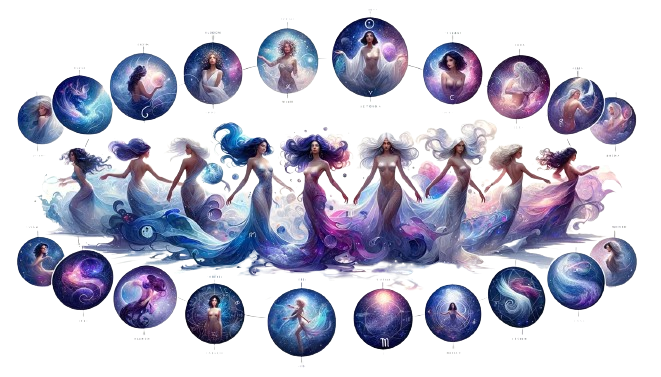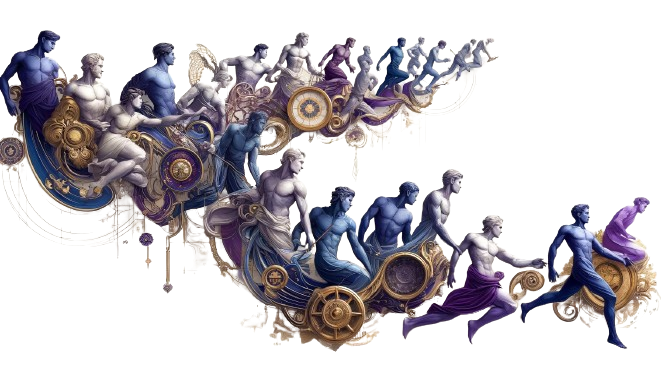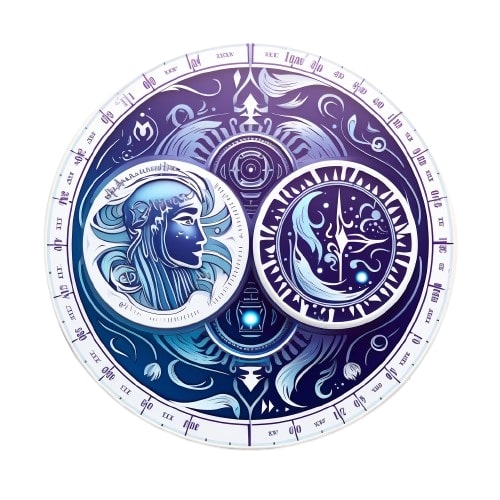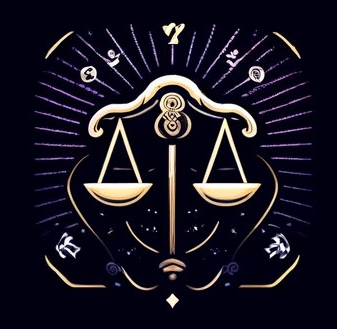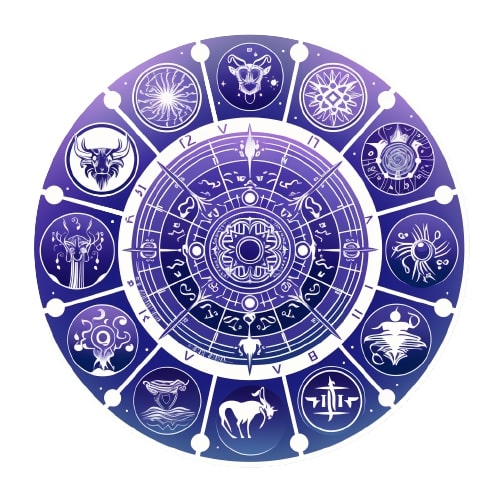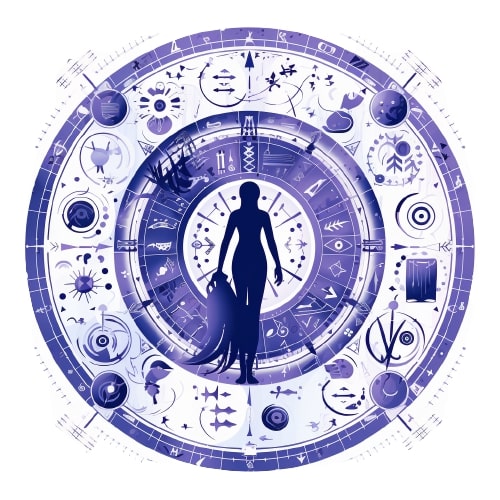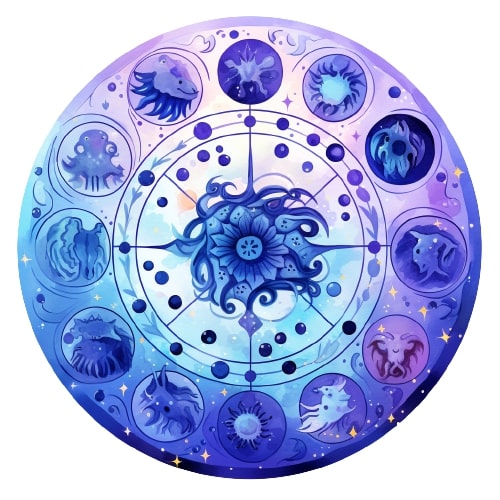Welcome to our exploration of the fascinating world of astrology and the different systems used to interpret celestial positions and their influences on our lives. In this article, we will delve into the debate between the tropical zodiac and the sidereal zodiac, two distinct astrological systems that offer different perspectives on star sign interpretations. By understanding the differences between these systems, we can gain deeper insights into the accuracy of horoscopes and how they impact astrological practice.
Understanding the Tropical Zodiac
The tropical zodiac is a significant astrological system. This system is based on the Earth’s seasons and revolves around the vernal equinox. It plays a pivotal role in measuring celestial positions and interpreting horoscopes.
The tropical zodiac divides the Earth’s orbit into twelve equal parts, each corresponding to a zodiac sign. As the Earth orbits the Sun, the vernal equinox marks the beginning of the astrological year, typically around March 21st.
One key factor distinguishing the tropical zodiac from other astrological systems is its focus on the relationship between celestial positions and the changing seasons. The tropical zodiac aligns star sign interpretations with the Earth’s annual cycle, emphasizing the dynamic nature of human experience.
For instance, individuals born under the zodiac sign of Aries are typically associated with traits such as confidence and initiative. This can be attributed to their birth occurring during spring, which is in full swing, reflecting this season’s energy and new beginnings.
The Importance of Celestial Positions
When utilizing the tropical zodiac, astrologers consider the precise moment of an individual’s birth to determine their star sign and create their horoscope. The specific position of the Sun at that moment is compared to the tropical zodiac to provide insights into the individual’s character, strengths, and challenges.
However, it is important to note that the tropical zodiac may not accurately reflect the current positions of the stars. This discrepancy arises from the fact that the tropical zodiac is fixed in relation to the Earth’s orbit, while the actual positions of the stars may vary over time due to factors such as precession.

Despite this potential misalignment, the tropical zodiac remains widely used and trusted by many individuals seeking astrological guidance. Its emphasis on the Earth’s seasons and their influence on human experiences adds a relatable and tangible element to horoscope interpretations.
- The tropical zodiac is based on the Earth’s seasons and the vernal equinox.
- It divides the Earth’s orbit into twelve equal parts, corresponding to zodiac signs.
- Celestial positions at the moment of birth are crucial for determining star signs and creating horoscopes.
- The tropical zodiac’s alignment with the Earth’s annual cycle adds depth and relatability to star sign interpretations.
By understanding the foundations and principles of the tropical zodiac, individuals can gain insights into their own personality traits and navigate life’s challenges with a fresh perspective.
Exploring the Sidereal Zodiac
Regarding astrological systems, the sidereal zodiac offers a unique perspective that considers the stars’ actual positions in relation to the Earth. Unlike the tropical zodiac, which focuses on the Earth’s seasons, the sidereal zodiac considers the true astronomical alignment of celestial bodies.
This astrology system recognizes that the stars’ positions have shifted over time due to the Earth’s precession, a slow wobble on its axis. As a result, the sidereal zodiac adjusts for these changes and aligns star signs with their corresponding constellations in the sky.
One of the main differences between the sidereal and the tropical zodiac is the spacing of the star signs. In the tropical zodiac, the signs are evenly divided into 30-degree segments, while the sidereal zodiac considers the varying sizes of the constellations, resulting in uneven sign durations.
Additionally, the sidereal zodiac is often touted as providing a more accurate representation of individuals’ astrological profiles, as it takes into account the current positions of the stars at the time of birth. This approach appeals to those who believe in the influence of the stars and planets on human behavior and destiny.
However, the debate concerning the accuracy of horoscopes within the sidereal zodiac system remains ongoing. Critics argue that the sidereal zodiac places less significance on the Earth’s seasons and their symbolism, potentially impacting the overall accuracy and relevance of horoscope interpretations.
Despite these differences, astrology enthusiasts find value in both the tropical and sidereal zodiac systems. While the sidereal zodiac may offer a more celestial-based approach, the tropical zodiac provides a framework that resonates with individuals’ experiences and the cyclical nature of the Earth’s seasons.
Whether one follows the tropical zodiac or embraces the sidereal zodiac, astrology remains a deeply personal journey. It is a tool for self-reflection, growth, and understanding, allowing individuals to explore their unique place within the cosmos.
The Key Differences
When it comes to astrological systems, the tropical zodiac and the sidereal zodiac stand apart with their unique perspectives and interpretations. Let’s explore the fundamental differences that set these two systems apart, from celestial measurements to star sign interpretations.
1. Celestial Measurements
The tropical zodiac bases its measurements on the Earth’s seasons and the vernal equinox, utilizing the ecliptic plane to divide the zodiac into twelve equal parts. On the other hand, the sidereal zodiac takes into account the actual positions of the stars in relation to the Earth, providing a more astronomically accurate perspective.
2. Star Sign Interpretations
One of the significant distinctions between the tropical and sidereal zodiacs lies in their interpretations of star signs. Due to the precession of the Earth’s axis, the tropical zodiac aligns star signs with the seasons, while the sidereal zodiac aligns them with the actual constellations. This means that over time, there can be a noticeable difference in the assigned star signs between the two systems.
For instance, depending on the system used, someone born under the tropical sign of Leo may be assigned the sidereal sign of Cancer. These varying interpretations can lead to different horoscope readings and personality traits associated with each sign.
The zodiac differences between the tropical and sidereal systems stem from their distinct approaches to celestial measurements and star sign interpretations. By understanding these key distinctions, individuals can gain a deeper insight into both astrological systems and make informed choices based on their preferences and beliefs.
Debating Horoscope Accuracy
Astrologers and skeptics have long debated the accuracy of horoscopes within the tropical and sidereal zodiac systems. Both systems have proponents, each arguing for their favored approach to astrological interpretation. Let’s explore the arguments for and against each system, shedding light on this hotly contested topic.

The Tropical Zodiac Perspective
Supporters of the tropical zodiac emphasize its historical significance and wide acceptance in contemporary astrology. They argue that this system, which is based on the Earth’s relationship to the Sun and the changing seasons, provides accurate and relevant horoscope readings. The tropical zodiac allows for the dynamic interpretation of star signs, considering the human experience within the context of the temporal world.
The Sidereal Zodiac Perspective
On the other hand, advocates for the sidereal zodiac assert the importance of aligning astrological interpretations with the actual positions of the stars and constellations. They argue that this system provides a more precise measurement of celestial movements and can lead to more accurate horoscope readings. Adherents of the sidereal zodiac believe that understanding the physical arrangement of the stars enhances the depth and authenticity of astrological insights.
Amidst this debate, it’s essential to acknowledge that interpreting horoscopes involves subjective factors and personal beliefs. Astrologers and their clients find resonance in specific astrological systems based on their individual experiences and connections. The quest for horoscope accuracy ultimately rests on finding an approach that aligns with one’s own beliefs and resonates intuitively.
- Proponents of the tropical zodiac argue for its historical significance and wide acceptance.
- Supporters of the sidereal zodiac advocate for aligning interpretations with the actual positions of the stars.
- Personal experiences and individual beliefs play a crucial role in determining the preference for a specific astrological system.
In the end, the horoscope accuracy debate continues to spark conversations within the realm of astrology. Whether one favors the tropical or sidereal zodiac, the search for celestial guidance remains deeply personal. As individuals navigate the vast astrological landscape, they are encouraged to explore different systems and approaches, embrace open-mindedness, and find the path that resonates most authentically with their own beliefs and experiences.
The Significance of Astronomical Perspective
When it comes to understanding the intricacies of astrology, the significance of having an astronomical perspective cannot be overstated. The variances in astronomical perspectives between the tropical and sidereal zodiacs contribute to the differences in star sign interpretations across astrological systems.
By examining these astronomical perspectives, astrological practitioners gain unique insights into the celestial positions and their influence on personal horoscopes. The tropical zodiac, based on the Earth’s seasons and the vernal equinox, offers a perspective that aligns more closely with the changes in the natural world.
On the other hand, the sidereal zodiac takes into account the actual positions of the stars in relation to the Earth, providing a perspective that focuses more on the literal positions of celestial bodies. This system offers astrologers a deeper understanding of the cosmos and its influence on individual destinies.
The Impact on Interpretations
These varying perspectives significantly impact star sign interpretations. Astrologers who follow the tropical zodiac tend to focus on the symbolic meanings associated with each sign based on the seasonal changes and the archetypal energy they represent.
Conversely, astrologers who adhere to the sidereal zodiac consider the star sign’s alignment with actual constellations, emphasizing each sign’s physical attributes and characteristics. This approach allows for a more direct connection to the stars themselves.
The Challenges and Insights
While both perspectives offer valuable insights, they also present challenges to astrologers. Navigating the differences between the tropical and sidereal zodiacs requires a deep understanding and appreciation of both systems.
The tropical zodiac’s seasonal approach provides astrologers with a framework that is relatable and easily understood by a wide audience. Its consistency and familiarity make it a powerful tool for interpretation.
On the other hand, the sidereal zodiac’s focus on actual celestial positions can present challenges in interpretation due to the complexities of accurately determining these positions. However, it offers astrologers the opportunity to tap into a deeper connection with the cosmos, providing unique insights that may not be as readily apparent in the tropical zodiac.
- Understanding the impact of the astronomical perspective is essential for astrological practitioners.
- Both the tropical and sidereal zodiacs offer valuable insights into star sign interpretations.
- While the tropical zodiac emphasizes symbolic meanings based on seasons, the sidereal zodiac considers actual celestial positions.
- Navigating the differences between the two perspectives requires a deep understanding of each system.
By recognizing the significance of astronomical perspective and embracing the insights and challenges it brings, astrologers can cultivate a more nuanced and comprehensive understanding of astrology, thereby enhancing the accuracy and depth of their interpretations.
Navigating the Astrological Landscape
When seeking astrological guidance, navigating the choice between the tropical and sidereal zodiacs can be confusing. However, understanding the differences between these astrological systems can help individuals find the approach that resonates best with their beliefs and personal preferences.

One key aspect to consider is the zodiac differences between the two systems. In the tropical zodiac, the position of the Sun at the vernal equinox determines the start of each astrological sign. On the other hand, the sidereal zodiac considers the stars’ actual positions in relation to the Earth. This distinction leads to variations in the dates and interpretations assigned to each sign.
To make an informed choice, individuals can explore their beliefs about celestial positions and their impact on astrological readings. Some may prefer the accuracy and alignment with astronomical reality offered by the sidereal zodiac, while others may resonate more with the symbolic and seasonal associations of the tropical zodiac.
Practical Tips for Navigating the Astrological Landscape:
- Research and educate yourself about the differences between the tropical and sidereal zodiacs.
- Consult astrological practitioners who specialize in each system to gain insights and perspectives.
- Reflect on your personal beliefs and what resonates with you the most – astronomical accuracy or symbolical associations.
- Experiment with both systems and see which approach provides you with more accurate and meaningful interpretations.
- Keep an open mind and be willing to explore different astrological perspectives.
Ultimately, the choice between the tropical and sidereal zodiacs is personal. It’s important to remember that astrology is a tool for self-reflection and understanding, and as such, finding the system that aligns with your beliefs and resonates with you is essential for a fulfilling astrological journey.
The Implications for Astrological Practice
When it comes to astrological practice, the choice between the tropical and sidereal zodiacs can have significant implications. With differing approaches and interpretations, these astrological systems shape how astrologers and enthusiasts analyze and apply astrological insights.
One key consideration is understanding zodiac differences. The tropical zodiac is based on the Earth’s seasons and the vernal equinox, while the sidereal zodiac considers the stars’ actual positions in relation to the Earth. These variations in celestial measurements can result in different interpretations of star sign characteristics and horoscope predictions.
Open-mindedness is crucial in navigating these astrological systems. Exploring both the tropical and sidereal zodiacs allows for a broader understanding of astrological beliefs and their nuances and variations. By embracing diverse perspectives, astrologers can deepen their insights and expand their practice.
Considerations for Astrological Beliefs
The tropical zodiac may provide a more familiar and reliable framework for those who closely align with traditional astrological teachings. Its emphasis on the Earth’s seasonal cycle and its symbolism can resonate strongly with individuals who value tradition and continuity in their astrological beliefs.
On the other hand, the sidereal zodiac offers a more astronomically precise perspective. This system acknowledges the actual positions of the stars and aligns with the concept of precession, which refers to the gradual shifting of Earth’s rotational axis. Siderealists often argue that this approach provides a more accurate representation of the celestial positions at the time of an individual’s birth, enhancing the accuracy of astrological insights.
Ultimately, the implications for astrological practice lie in the hands of individual astrologers and astrology enthusiasts. It is essential to approach these systems with curiosity, respect, and an open mind, as understanding the different astrological perspectives can enhance the interpretation and application of astrological insights.
Exploration and Personal Preference
When engaging with astrological practice, exploring and finding an approach that aligns with personal beliefs and resonates with individual experience is important. What works for one person may not work for another, and there is no one-size-fits-all answer in the astrological landscape.
Practitioners can evolve and refine their practice by being open to different astrological systems and engaging in ongoing exploration. This willingness to embrace new perspectives can lead to a more holistic and nuanced understanding of astrology, ultimately benefiting both the astrologer and the clients seeking their guidance.
Therefore, the implications for astrological practice within the tropical and sidereal zodiacs are vast. Understanding the zodiac differences and embracing open-mindedness and exploration are essential for astrologers who strive to provide accurate and meaningful insights. By considering the perspectives offered by both systems and aligning them with personal beliefs, astrologers can enhance their practice and offer valuable guidance to those seeking astrological wisdom.
Conclusion
After exploring the tropical zodiac and the sidereal zodiac, it is clear that both astrological systems offer unique perspectives on star sign interpretations. However, the key differences between these systems cannot be ignored. The tropical zodiac is based on the Earth’s seasons and the vernal equinox, while the sidereal zodiac considers the actual positions of the stars.
When it comes to choosing between these astrological systems, personal preference and understanding play significant roles. Some individuals may resonate more with the traditional approach of the tropical zodiac, which aligns with popular horoscope interpretations. Others may find the sidereal zodiac’s focus on astronomical accuracy and celestial positions more appealing.
Ultimately, the decision between the tropical and sidereal zodiacs rests in the hands of the individual seeking astrological guidance. It is important to explore both systems, consider their differences, and make an informed choice that aligns with personal beliefs and resonates with one’s own experiences. By doing so, one can confidently navigate the astrological landscape and find meaning in star sign interpretations.
























